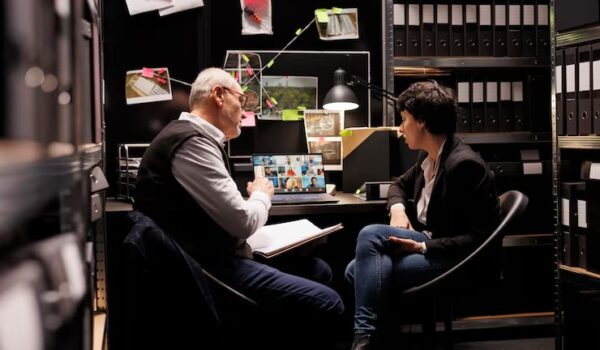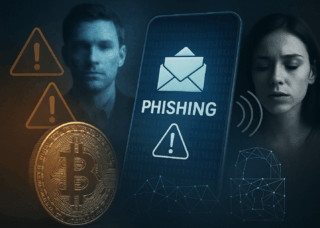Top 10 Ways a Private Investigator Can Stop Crimes
- Private investigators are often hired to help with various cases, including criminal investigations.
- They can use their skills and expertise to gather evidence, identify suspects, and prevent crimes from happening.
How Private Investigators Stop Crimes
Private investigators use a variety of methods to stop crimes, including:
- Surveillance: Private investigators can follow suspects and gather evidence of their activities.
- Background checks: Private investigators can research suspects backgrounds to identify potential criminal activity.
- Interviews: Private investigators can interview witnesses and suspects to gather information about crimes.
- Physical evidence collection: Private investigators can collect physical evidence, such as fingerprints, DNA, and surveillance footage, to help identify suspects and build cases.
Benefits of Hiring a Private Investigator
There are many benefits to hiring a private investigator to help stop crimes, including:
- Private investigators are trained and experienced in conducting investigations.
- They have access to resources that the average person does not, such as databases of criminal records and surveillance equipment.
- They can work quickly and discreetly to gather evidence and identify suspects.
Private investigators are often hired to help with a variety of cases, including criminal investigations. They can use their skills and expertise to gather evidence, identify suspects, and prevent crimes from happening.

Here are 10 ways a private investigator can stop crime:
- Conduct surveillance. Private investigators can follow suspects and gather evidence of their activities. This can include video footage, photographs, and audio recordings. Continue below to understand the ethical and legal parameters for conducting surveillance.
- Research backgrounds. Private investigators can research suspects’ backgrounds to identify potential criminal activity. This can include criminal records, financial records, and social media activity.
- Interview witnesses. Private investigators can interview witnesses to a crime to gather information about what happened. This can include eyewitnesses, victims, and people who know the suspect.
- Collect physical evidence. Private investigators can collect physical evidence, such as fingerprints, DNA, and surveillance footage, to help identify suspects and build cases.
- Provide expert testimony. Private investigators can provide expert testimony in court about their findings. This can help to convict criminals and bring justice to victims.
- Recover stolen property. Private investigators can track down and recover stolen property. This can include cars, jewelry, and other valuables.
- Protect witnesses and victims. Private investigators can provide security for witnesses and victims of crime. This can help to keep them safe from retaliation.
- Prevent crime. Private investigators can use their skills and knowledge to prevent crime from happening. This can include conducting security assessments, providing training, and developing security plans.
- Investigate insurance fraud. Private investigators can investigate insurance fraud. This can help to protect insurance companies and their policyholders from financial losses.
- Provide peace of mind. Private investigators can provide peace of mind to individuals and businesses. This can be done by conducting background checks, investigating suspicious activity, and providing security services.
There are many different types of surveillance, including:
- Physical surveillance: This involves observing someone or something in person.
- Electronic surveillance: This involves using electronic devices to monitor someone or something, such as cameras, microphones, and GPS trackers.
- Cyber surveillance: This involves monitoring someone or something online, such as their email, social media, and internet activity.
Legality of Surveillance
- The legality of surveillance varies depending on the country and the purpose of the surveillance.
- In the United States, for example, law enforcement agencies must obtain a warrant before conducting surveillance on a citizen.
Ethics of Surveillance
- Surveillance can raise ethical concerns, such as the right to privacy and the potential for abuse.
- It is important to weigh the benefits of surveillance against the potential costs before conducting surveillance.
- If you are considering conducting surveillance, there are a few things you should keep in mind:
- Plan carefully: Before you start conducting surveillance, you should carefully plan your operation. This includes determining the purpose of the surveillance, the target of the surveillance, and the methods you will use.
- Be discreet: It is important to be discreet when conducting surveillance. This means avoiding drawing attention to yourself or your activities.
- Be legal: Make sure that you are familiar with the laws in your area regarding surveillance.
- Be ethical: Consider the ethical implications of your surveillance before you start.
- Surveillance is a powerful tool that can be used for a variety of purposes. However, it is important to use surveillance responsibly and ethically.
What is the difference between a background check and a private investigation?
- A background check is a report that summarizes a person’s criminal history, education, employment, and financial records.
- A private investigation is a more comprehensive investigation that may include interviews with witnesses, surveillance, and other investigative techniques.
Witness testimony is an important part of many legal proceedings. It can be used to establish facts, corroborate other evidence, and provide context for the events at issue.
Private investigators can play a valuable role in providing witness testimony. They have the skills and experience necessary to gather evidence, interview witnesses, and prepare them to testify in court.
Here are some of the ways that private investigators can provide witness testimony:
- Interviewing witnesses: Private investigators can interview witnesses to a crime or other incident. This can help to gather information about what happened and identify potential suspects.
- Preparing witnesses to testify: Private investigators can help witnesses prepare to testify in court. This includes teaching them how to answer questions, how to stay calm under pressure, and how to deal with cross-examination.
- Providing expert testimony: Private investigators with specialized knowledge can provide expert testimony in court. This can be helpful in cases involving complex technical issues or specialized fields of knowledge.
If you have been the victim of a crime or believe that a crime is about to happen, you should consider hiring a private investigator to help. Private investigators can play a valuable role in stopping crime and protecting your safety.
Considerations:
- Private investigators can play a valuable role in stopping crimes. If you have been the victim of a crime or believe that a crime is about to happen, you should consider hiring a private investigator to help.
- Make sure your blog post is well-organized and easy to read.
- Use clear and concise language.
Tying it up:
At Privin, we provide private investigative services all across the country including states like California, Oregon, Washington and Nevada. If you’re in need of a PI, please get in touch to find out how we can help.
FAQs: How Private Investigators Help Prevent and Solve Crimes
1. How do private investigators conduct surveillance to prevent crimes?
Private investigators monitor suspects discreetly, using video footage, photographs, and audio recordings to gather evidence. This surveillance helps identify criminal activities and can deter potential offenses by increasing the risk of detection.
2. What role do private investigators play in background checks?
They research suspect’s backgrounds, including criminal records, financial histories, and social media activity, to uncover potential criminal behavior. This information aids in assessing risks and preventing future crimes.
3. How do private investigators assist in witness interviews?
Private investigators interview witnesses, victims, and individuals familiar with the suspect to gather information about crimes. These interviews provide valuable insights and can lead to the identification of perpetrators.
4. What types of physical evidence can private investigators collect?
They collect physical evidence such as fingerprints, DNA samples, and surveillance footage. This evidence is crucial in identifying suspects and building strong cases for prosecution.
5. How do private investigators contribute to crime prevention?
By conducting security assessments, providing training, and developing security plans, private investigators help organizations and individuals implement measures that reduce the likelihood of criminal activities.






